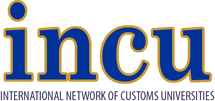In August 2014, the office of INCU Secretariat in Canberra, Australia was visited by the delegation of Sudan Customs Administration. The delegation was composed of three senior officials from Sudan Customs including the Director-General:
- Major General Dr. Saifeldin Omer Suliman Ahmed, Director-General, Sudan Customs Authority (and Chair of the Board of Trustees of the Academy)
- Major General Dr. Bashir Eltahir Bashir Elgali Director, Khartoum Customs Directorate, Sudan Customs Authority (and Reporter of the Board of Trustees of the Academy)
- Colonel Mr. Ali Giddo Adam Bashr Obeida Director, Planning Directorate, Sudan Customs Authority (and Member of the Board of Trustees of the Academy)

The purpose of the visit was to discuss future cooperation between the INCU and the newly-established National Academy of Customs Sciences and Technology (NACST), located in the capital of Sudan, Khartoum, and identify ways in which INCU may be able to assist NACST.
Established in early 2014, NACST is considered the training arm of Sudan Customs administration. NACST currently offers three academic programs: 1) Customs Sciences Program, 2) Economics and International Trade Program and 3) Information Technology Program and intends to apply for the WCO recognition of its academic curriculum under the PICARD Professional Standards.
The delegation met with INCU President, Prof David Widdowson, INCU Head of Secretariat, Dr Mikhail Kashubsky, and other faculty members of Charles Sturt University (CSU) where INCU office is housed. During the meeting, various matters were discussed including the academic content and curriculum, teaching methods, research activities, recruitment of external lecturers, and NACST抯 participation in the PICARD Programme.
Prof. Widdowson complemented Dr. Suliman and other members of the delegation on the establishment of NACST and progress that has been made so far, which he considered a great step towards strengthening Customs professionalism and capacity-building in the African region and internationally.

